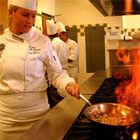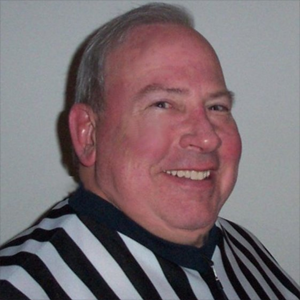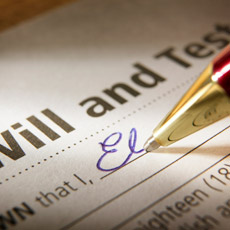Cheating death and fighting communism: that is how a fellow officer once described our job. It was meant to be funny, but as time went on it seemed all too true.
I spent more than ten years in law enforcement, all of it on the street in uniform patrol. I've been a patrol officer, instructor, sergeant and lieutenant.
Do not report crimes here. Nothing here should be considered legal advice. All opinions are my own.
The short answer is no, police officers are not trying to kill anyone when they are forced to shoot them. The long answer: A police officer is authorized to use deadly force only when confronted with an imminent deadly threat, or to prevent/stop a forcible felony (armed robbery, rape, etc). The use of a firearm is deadly force. So, any time a police officer is authorized to shoot someone, it is an emergency situation where the officer or innocent citizen is in immediate danger. The objective is to stop the threat as quickly as possible. Or, in other words, to get the bad guy to stop whatever he is doing to create the dangerous situation. Shooting is a very precise activity. In a stress situation, with people moving and other variables, putting a bullet that is a fraction of an inch wide into any specific location is virtually impossible. So, officers are trained to shoot for the torso, which is the largest target. Additionally, wounds to the torso can cause rapid incapacitation due to blood loss. Wounding someone in the arm is not realistic as it is a very hard target to hit, and it is not likely to stop the violent behavior of the suspect. So, officers are trained to shoot to stop the threat. Death is sometimes a byproduct of that, but it is not the goal.
Of course. There are a lot of laws that police officers feel are excessive. Different cops have different views, but most officers tend to have a libertarian streak to them. (I know - it's not what it portrayed on the internet and in the media, but it is true.) So, many/most of the laws telling people what they can/can't do with their lives & property don't sit well with many of us. Things like getting permission from the local government to cut down a tree on your property or how many cars you can park in your driveway really don't sit well with most of us. Ultimately, most cops try to apply a little common sense to a situation. From your example, most of the officers in our jurisdiction won't stop someone for less than 10 mph over the posted limit.
Motivation. I know a lot of really good officers. But the really great ones are the ones who are self-motivated to excellence. The problem is maintaining the motivation over a career. Dealing with the stuff on the street is bad enough, but inept leadership in departments can crush morale and motivation.
I enjoy working in uniform patrol as I am responding to crimes and emergencies as they are happening, not merely following up on a case later. A detective's life is fairly routine, whereas a patrol cop's day is completely unpredictable. It isn't a simple matter to quantify who wants to be a detective. Some officers make the move because they like taking a major case and running it to its conclusion no matter how long it takes. Other guys make the move simply because of a pay increase or they want the weekends off. A lot of officers transfer over just as a change of scenery. There are a lot of perks for being a detective, but its just not a job thats interested me.
Chef
 Has anyone ever found anything gross in their food on your watch?
Has anyone ever found anything gross in their food on your watch?
Basketball Referee
 Ever get into a physical altercation with a crazed parent?
Ever get into a physical altercation with a crazed parent?
Wills and Estates Lawyer
 Can I leave everything to my pets?
Can I leave everything to my pets?
Every department is different on degrees. Some require 4 year degrees, but most do not. A college education is ok, but other than giving you general knowledge, it isn't of much use as a street cop. For promotion, it is requirement for many positions. Frankly, the problem with many new officers is their sense of entitlement and lack of worldly experience. Generally, I have found that new cops that were in the military are far better equipped to be police officers. Most of them have had life experience beyond sitting in a classroom and partying all weekend. At the end of the day, officers are required to seek out the most dangerous elements of society and confront them. When someone starts shooting, everyone runs away except a police officer, who runs toward the danger. Most colleges don't prepare people for that action.
Depends. What other evidence do I have that something criminal is taking place? For example, do I have witnesses telling me something different? Do I see injuries on the woman? Can I see damage inside the residence from a fight? If someone called 911, do I have recorded statements from the woman (or others) that give me evidence that things are not "fine?" There have been numerous cases where a woman has been standing at the door telling the officers "everything is fine," while the man is behind the door/around the corner threatening to hurt/kill her if she tells the cops anything else. Officers are obligated to investigate each case fully, but within the confines of the law. If no evidence exists, and the woman insists "everything is fine," that may be the end of it. If other evidence exists, officers will investigate as far as they legally can.
Yes and no. Some lies are ok, but some are not. Criminals lie to cops constantly, and it is my job to figure out what the truth is. Suggesting I have more information that I actually do is one way that I can get a criminal to trip themselves up in their lies. But, with all things, a court is going to determine if an officer's actions were reasonable. Generally, promises of a lighter punishment, not being prosecuted, etc. you cannot lie about.
-OR-
 Login with Facebook
Login with Facebook (max 20 characters - letters, numbers, and underscores only. Note that your username is private, and you have the option to choose an alias when asking questions or hosting a Q&A.)
(A valid e-mail address is required. Your e-mail will not be shared with anyone.)
(min 5 characters)
By checking this box, you acknowledge that you have read and agree to Jobstr.com’s Terms and Privacy Policy.
-OR-
 Register with Facebook
Register with Facebook(Don't worry: you'll be able to choose an alias when asking questions or hosting a Q&A.)